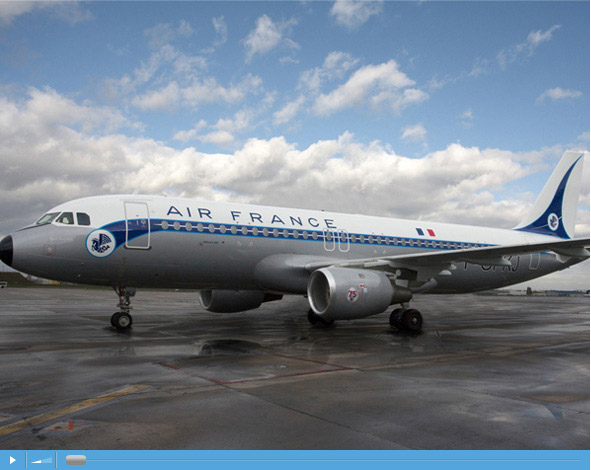Air France KLM has positioned itself as the first European carrier in the Korean market for the last 25 years of its operation in Korea, and sees more potential in the market despite the current worldwide economic slowdown.
Herve Moulin, Air France KLM's general manager for Korea, recognized Korea as a growing and quickly maturing market, having evaluated more than two decades of change.
"When we came 25 years ago, the market was not at all the same size as now. There has been quite a strong escalation since the Olympic Games in 1988 and the number of travelers has grown,'' Moulin said.
Change in Korean Market
Air France KLM was the first European carrier to operate in Korea. Air France began cargo service in 1973 and passenger service in 1983, marking the 25th year of passenger operations this year. KLM was formed in 1984.
"When we came 25 years ago, the market was not at all the same size as now. There has been quite a strong escalation since the Olympic Games in 1988 and the number of travelers has grown,'' Moulin said.
"It has gone from a regulated market to a more liberal one. We make business in Korea like anywhere in the world. The maturity of the market has also come from that of a growing country we needed to explore to that of a matured one,'' the 45-year-old said.
The number of French corporations investing in Korea has also increased, and is now almost 180.
"The main evolution is Korean people's way of traveling. In the past it was mostly group travelers, making quick tours. Now the tours are on a more and more individual basis. People also have e-tickets now,'' said the aviation expert with a 19 year career.
No. 1 European Carrier in Korea
Back in 1983, the airline operated two weekly flights via Tokyo. Now it runs three daily flights one between Seoul and Paris by Air France; one on the same route via Korean Air with a code-sharing operation and one between Seoul and Amsterdam via KLM.
In terms of market share, Air France KLM is the first in Korea among European carriers. The number of passengers using Air France and KLM flights between Seoul and Europe is 200,000 per year, 45-50 percent of them Korean.
"We enjoyed a sustainable growth during the past years, two-digit growth. Today, in the economic difficulty, we succeeded to continue a small growth until October. It's very specific because in Korea the outbound travel has been negative since May. But for Europe, the growth continues,'' the general manager said.
"We also have good brand awareness, with the name Air 'France.' These are the ways that we manage this economic situation at the moment,'' he said.
The strong partnership with Korean Air also helps the carrier's business here, Moulin said. Air France and Korean Air were two of four founding members of the airline alliance Sky Team in 2000, and the alliance allows them to cooperate in service, frequent flyer programs, assistance at airports and access to lounges.
Code-sharing is an agreement through which an airline sells seats on another carrier's flights under its own name. "We connect two powerful hubs, Incheon and Charles de Gaulle, with all connecting flights by Korean Air on one side and by Air France on the other,'' Moulin said, adding the French airport is the busiest in Europe in terms of connections.
For Korean customers, KLM has Korean cabin crew and Air France has interpreters aboard. Moulin said it is important to provide something Korean because it is a frequent request from customers. To meet the request, the airline offers a Web site in Korean, Korean-language assistance at foreign airports and a Korean-style in-flight meal menu. KLM provides dishes of Yongsusan, one of the most renowned traditional Korean-style dishes, while Air France serves kimchi, "bibimbap'' and noodles.
Today, Air Franc KLM is the leading European carrier in the Korean market and aims to maintain its position.
"How? I take the motto of Air France by making Air France KLM the 'preferred European airline' of Korean customers. Behind the simple motto, it means a lot and there's much work to do.'' Moulin said.


~1.JPG)


.jpg)


















